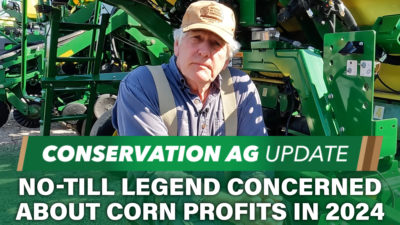Developing emissions markets to encourage farmers in poor countries to store more carbon dioxide in soil should be a key topic on the U.N. climate talks agenda, global warming activist Al Gore says.
"I think that soil carbon conservation and recarbonizing of soil must be the next stage in this negotiating process," the former U.S. Vice President told reporters on the sidelines of a climate conference at the United Nations.
Agriculturists can store more carbon in soil through techniques, such as no-till, instead of plowing it up and releasing the carbon into the atmosphere, or through crop rotations.
Gore says that if a clear signal on carbon storage in soil emerged from the 190-nation U.N. climate talks in Copenhagen in December, it would serve as a "very important measure" to help get developing nations to participate in helping to slow climate change.
Rich and poor countries aim to hammer out a new global deal at the Copenhagen meeting on how to slow global warming and deal with its consequences, but talks have stalled on how to share the burden.
In sub-Saharan Africa, soil carbon has been so depleted that it harms food production and is expected to worsen as a consequence of global warming, Gore says.
Soils can hold carbon for thousands of years when dead leaves, crop residue and other vegetation combine chemically with existing soil particles instead of rotting fully. More carbon is held in this way than in trees and other vegetation.
But agricultural techniques such as heavy plowing, the use of too much fertilizer and the discarding of the practice of rotating crops have led to the depletion of soils and the carbon in them in many countries, Gore claims.
He says polluters and investors in rich countries could potentially help invest in projects promoting new and improved agricultural methods that retain carbon, such as no-till, in developing countries through carbon credits.
Similar offsets resulting from storing carbon in forests and soils are already available in voluntary carbon markets, including ones for domestic projects on the Chicago Climate Exchange.
Opponents of such programs say the science is still young on measuring how much carbon is stored in this way. As a result, the price for soil sequestration offsets has traditionally trailed the price of other offsets projects, such as solar energy farms.
Others say measurements are improving and that the offsets are a huge potential market that could reward farmers and make the soil yield more and better food.
Gore says improving the soil in many poor countries through such offsets could help fight against hunger and malnutrition.






Post a comment
Report Abusive Comment